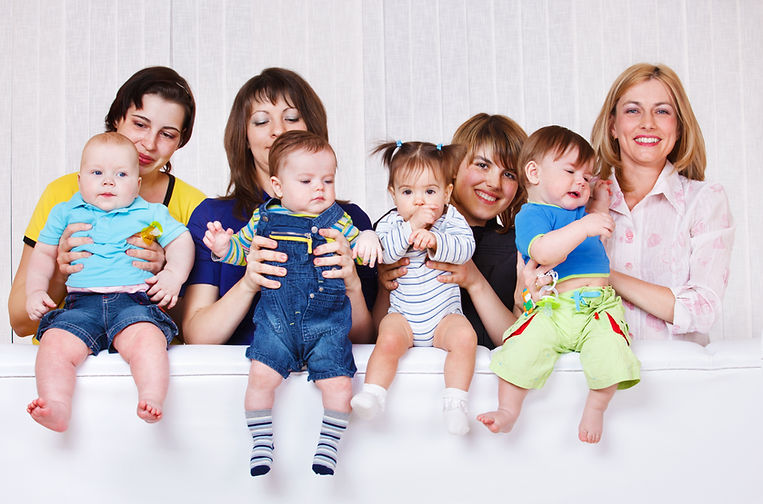
Sensory Savvy Parenting
Learn what you can do to help grow your baby’s brain and meet all milestones!
All milestones are met through development of the sensory systems!
The moment a child is exposed to the external world outside of the womb he/she starts integrating the sensations felt from the world around them, including gravity! An infant’s job in the first year of life is to explore their bodies and the external environment through their sensory systems by engaging in sensorimotor exploratory play. When sensations becoming too overwhelming infants require a responsive parent to help co-regulate their nervous system from a distressed, dysregulated state back down to a calm, relaxed (but alert) arousal state. This is how a child learns which sensations are a threat to survival and which sensations are not, how sensations are different from each other, and how to use these experiences to interact with a new environment. Every time a baby moves it sends a sensory signal to the brain resulting in growth and maturity! The more a child moves, touches and manipulates objects, and even puts things in their mouth during unrestricted, sensorimotor play the more connections they are making in the brain. This results in laying the foundation for learning and meeting all milestones! During the first year of life the brain hardwires connections related to basic processing including the sensory systems and movement to then allow development of higher-level processes like learning, communication, and emotional control. This means it is essential that babies have opportunities for unrestricted, natural sensorimotor exploratory play over and over and over so they become the masters of their body's processing skills.
As mentioned, research shows that the first few years of life are critical in laying the beginning of neural connections by establishing either a sturdy or fragile foundation for all of the learning, health, and behavior that follows, as well as teaching the brain how to respond to sensations and stress. In the first years of life, more than 1 million new neural connections are formed every second! Furthermore, the first 3 months sets the neurological foundation of brain functioning. The emotional and physical health, social skills, and cognitive-linguistic capacities that emerge in the early years are all important prerequisites for success in school and later in the workplace and community.
Knowing how to support your child's neurodevelopment at the start of life outside of the womb is essential. With a little education and resources updated with the latest evidence in brain development you can positively impact your child's development to meet milestones and eventually become a happy, well-connected adult.

Purposeful Parenting: A Sensory Savvy Approach
SSK is dedicated to the prevention of SPD and developmental delays!
The CDC reports 1 in 6 children qualify as having a developmental delay some of which can be prevented through education and resources for new parents. The prevention program takes a proactive approach to help your grow your baby's brain in a natural, responsive manner. It also is designed to prevent developmental delays and SPD in children who are at risk without appropriate opportunities for movement and exposure to sensory experiences during the first year of life.
Research shows that some infants are at risk for developing SPD including low birth weight, prematurity, prenatal complications, maternal stress and illness, medications, delivery complications, lower socioeconomic status, living with a single parent, and ethnic minority. (https://sensoryhealth.org/basic/latest-research-findings#f2)
The program aims to reach out to those children at risk for SPD and educate ALL new parents on child neuro-developmental to meet milestones and promote brain maturity. The goal is help new parents feel competent with their newborn and support natural development.
Key concepts of the parent program includes:
What your baby’s brain needs to grow and learn to its fullest potential (reflexes, sensory-motor development, attachment/emotional regulation)
Practical expectations of what your baby is going to do all day
How to engage your babies sensory systems, in a natural, non-stress inducing manner
How you can promote milestone development and prevent developmental delays
What responsive parenting means and how to be a responsive parent to lay the neural foundations for a happy, healthy, independent child

